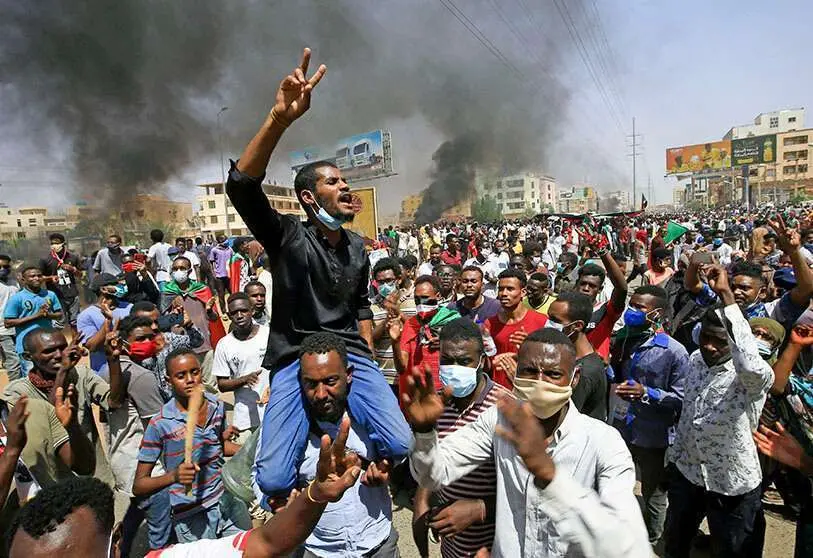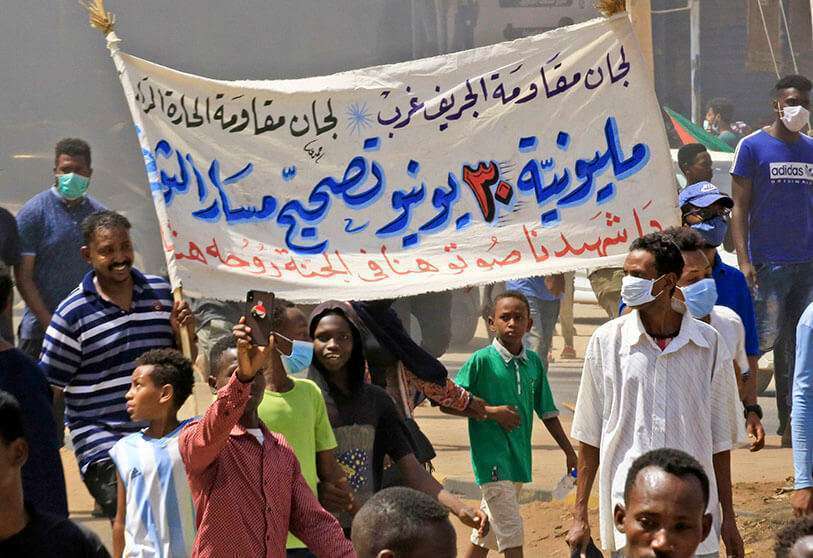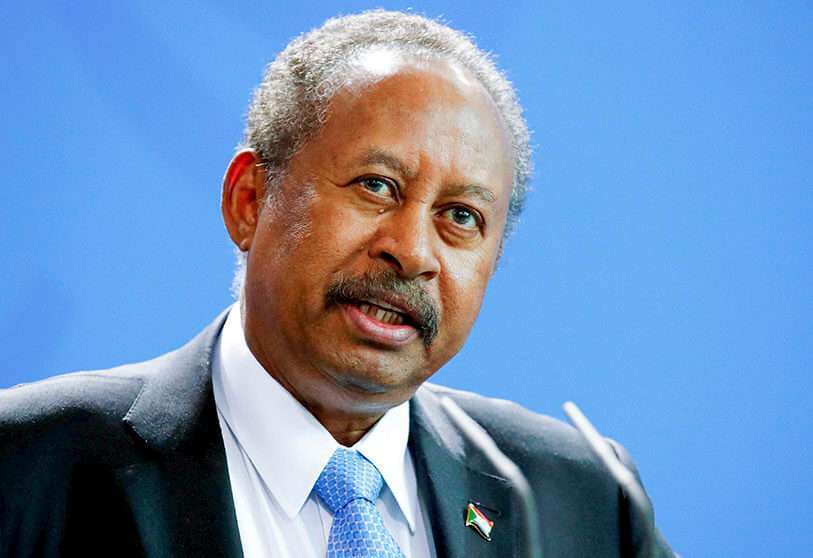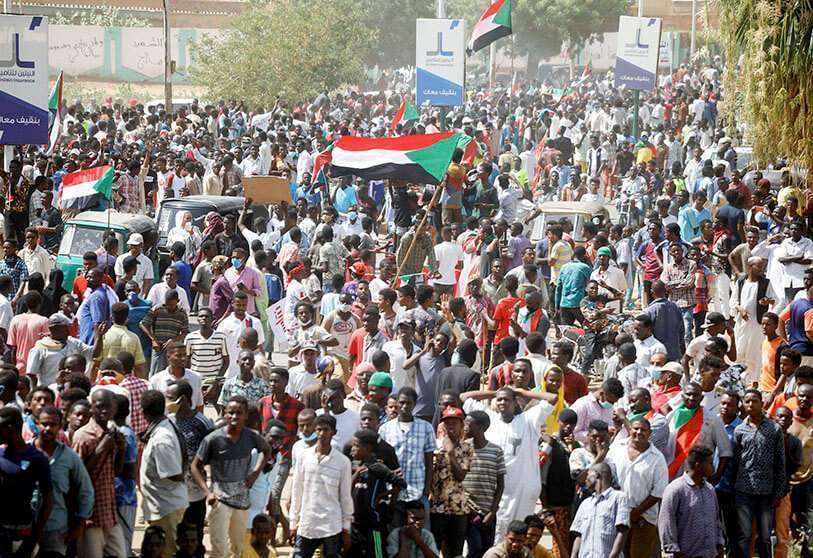Sudanese remind the government on the streets of pending promises

Thousands of people demonstrated in Sudan's major cities on Tuesday to remind the transitional government, which took office in September 2019, that promises of justice and punishment for those responsible for the repression in the protests that ended President Omar al-Bashir's government are still outstanding.
The pro-democracy rallies, organized by the Sudanese Professionals’ Association, which brings together opposition trade unions and was behind the protests that ended al-Bashir's regime in April 2019, were attended by tens of thousands of people who took to the streets to demand democratic reforms. Around 350,000 people took part in Tuesday’s rallies, the spokesperson for that association, Hassan Farouk, told Omdurman Radio. The protesters denounced the current economic situation, which has not improved nearly a year after a power-sharing agreement was struck between the ruling military council that had overthrown al-Bashir and a civilian opposition alliance.

In the capital, Khartoum, the protesters shouted slogans such as “Execution for the killers of the revolutionaries,” “No forgiveness” and “Free revolutionaries continue the journey.” A particularly large police deployment was observed near the main bridges that link Khartoum with the nearby cities of Khartoum North and Omdurman, where the security forces used tear gas to disperse a group of protesters trying to cross one of the viaducts.
The protesters demanded that those responsible for killing demonstrators last year – particularly during the June 3, 2019, dismantling of a sit-in protest outside the army’s headquarters in Khartoum – be brought to justice.
The violent dispersal of the demonstrators by the paramilitary Rapid Support Forces, an action now under investigation by a government-appointed independent committee, left 87 dead, according to a controversy-marred investigation by the Attorney General’s Office. The demonstrators, for their part, put the death toll from the June 3 attack at 128.

In addition, the Sudanese Professionals’ Association also is demanding an overhaul of the economic policy that has been in place dating back to al-Bashir’s reign, considering that the country’s gross domestic product contracted by 2.5 percent last year and is expected to shrink by 8 percent in 2020. The country has inflation of over 100 per cent and its foreign debt is 190%, more reflections of a pressing crisis that this week led Abdalla Hamdok's administration to announce a comprehensive economic plan with the support and advice of the International Monetary Fund.
Ibrahim al-Tayib, a 27-year-old unemployed university student, said the Sudanese people should resume the uprising that led to the fall of al-Bashir because “not all of the objectives were achieved". Peace has remained elusive as the population awaits an imminent agreement between the transitional government and the armed opposition, the young man told Efe. “The conditions are worse than they were during the era of the ousted president, Omar al-Bashir. Hamdok’s government has failed, so we’ve come out to warn him that the revolution has not achieved its objectives and we can overthrow Hamdok just like we did al-Bashir.” Samahir Abdel Rahman, a housewife, told Efe.

In addition to peace and justice for the dead protesters, Isam Taha, 31, is particularly concerned that more than 14 months after the toppling of the regime of al-Bashir, many members of his regime are still being tried and currently living in a “comfortable prison.” He also lamented that those responsible for the deaths of Sudanese “revolutionaries” remain free and that the economic crisis is growing steadily worse. "The lines for bread and fuel remain the same, and the economic crisis is strangling the people," he concluded.








